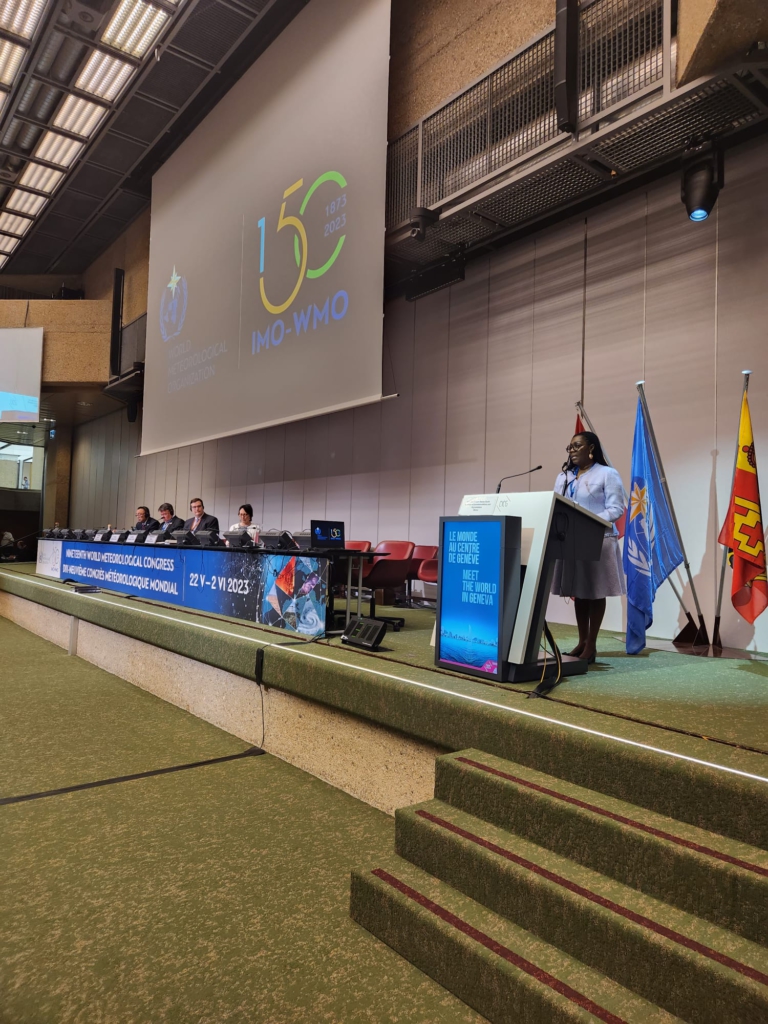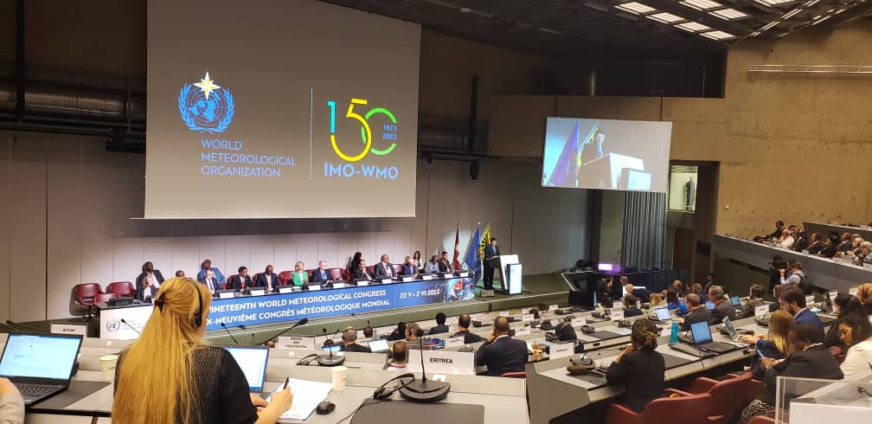Minister of Communication, Ursula Owusu-Ekuful, has expressed worry about the African continent's lower rate of Early Warning System implementation as compared to other regions.
According to the World Meteorological Organization's 2021 State of the Climate Report for Africa, about sixty percent of Africans who do not have access to an Early Warning System are unable to cope with extreme weather and climate change.
“This exacerbates the risk for African people and this situation should not be allowed to persist. We have to be proactive and to protect its people through Early Warning System using modern digital technology,” the minister said.

Ms. Owusu-Ekuful also stated that technological advancements such as satellite monitoring have enabled the National Meteorological and Hydrological Services (NMHSs) to predict weather conditions with greater accuracy, allowing authorities to provide more specific, localized warnings to people in affected areas. And that the integration of technologies such as social media, apps, text messages, and push notifications make it easier for authorities to reach out to individuals in a timelier manner.
“Leveraging these technologies is part of our strategy to mitigate the gaps in access to early warning to provide timely weather services. The Ghana Meteorological Agency’s ‘My Flood Risk Accra App’ which provides real-time flood and weather alerts for our capital city was launched in August 2021. The App informs citizens about their exposure to flood risks for early preparedness and early action,” she said.
An Early Warning System is a climate change adaptation measure that uses integrated communication technologies to assist communities in preparing for hazardous climate-related events.
A successful EWS saves lives and employment, as well as land and infrastructure, and contributes to long-term sustainability. Early warning systems will aid public authorities and administrators in their planning, saving money and preserving economies in the long run.
Working with a variety of partners, the UN has launched a number of unique Early Warning System efforts in vulnerable areas across the world.
The minister told participants at the World Meteorological Organization's 19th congress in Geneva that GMet uses a USSD Code as part of the GMES and Africa Project for marine and ocean forecasting, which provides three (3) days sea forecast for artisanal fisheries, upstream, marine transport, and hospitality sectors, among others.
“Ghana is also using Impact-based Forecast (IBF) now, providing updates on the likelihood and impact of extreme weather expected over specific areas to inform planning and support decision-making especially for vulnerable communities.”
Latest Stories
-
Photos from DW-JoyNews street debate on ‘galamsey’
4 mins -
Mimmy Yeboah: Blending heritage with global sophistication, confidence redefined through couture
18 mins -
Akufo-Addo commissions 97-km Tema-Mpakadan railway line
46 mins -
Majority requests recall of Parliament
1 hour -
Kanzlsperger and Professor Quartey support WAFA with medical Donation
1 hour -
Gideon Boako donates 10 industrial sewing machines to Yamfo Technical Institute
1 hour -
‘Golden Boy’ Abdul Karim Razak honored at WAFU-B general assembly
2 hours -
Buipewura Jinapor secures Vice Presidential position in National House of Chiefs with record votes
2 hours -
2024 election: I want results to come out like ‘milk and honey’ – Toobu
2 hours -
Ghana’s Henry Bukari hands over chairmanship of ECOWAS Brown Card Council of Bureaux
2 hours -
Residents of Dome-Kwabenya on edge ahead of December elections
2 hours -
Moffy drops new single ‘Wo’, blending culture and modernity
3 hours -
Don’t bring soldiers to polling stations – Martin Kpebu
3 hours -
Ogyeahohuo Yaw Gyebi II retained as President of National House of Chiefs
3 hours -
Embrace ICT to fit in digital world – Ho NYA boss to youth
4 hours

